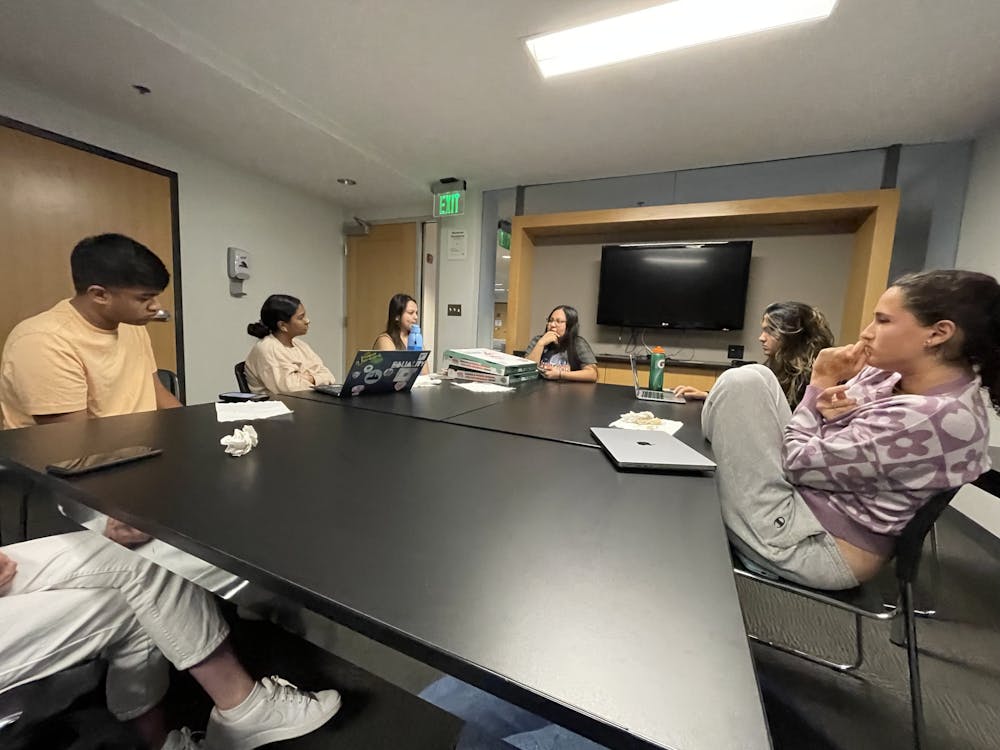The Public Health Student Forum (PHSF) held an open discussion on environmental safety and sustainability in Baltimore on Sunday, Oct. 29. The event featured a conversation on the efficacy of Hopkins composting, water safety in light of the recent Cryptosporidium contamination, how institutions can build trust with the Baltimore community and the importance of engaging in local politics.
The free-flowing discussion was moderated by PHSF Events Co-Chair Srigouri Oruganty. In an interview with The News-Letter, Oruganty discussed the importance of creating a welcoming space for all students to share their thoughts.
“We all have our own opinions, our own perspectives. Listening to other people in a space where we're not judging anyone, we're all just having a conversation will help build your own perspective and better your understanding of the world,” she said.
PHSF hosts two forums on the same general theme each month; this forum was the second of its kind, with a prior event on global climate change taking place on Oct. 15. This is a new type of programming for the organization and marks a shift from more structured events — such as an annual undergraduate conference in public health or Cookies and Classes with public health advisors — toward an open, easily-accessible model.
Co-President Sanya Bawa shared that the group seeks to minimize the restrictions keeping students from engaging with public health topics.
“We used to have an application process and requirements for membership. Now, we've thrown all that out the window because we want it to be more open. We don't want there to be restrictions on how people can interact in the public health space,” she said in an interview with The News-Letter. “A lot of college conversations are professors lecturing to students; that's why it's very important to have a student-on-student format where people can learn from each other.”
This student-driven format is particularly relevant for public health conversations where there is no single correct answer, only possible solutions. Bawa stressed that debating ideas in a non-judgmental group setting is an essential part of engaging in the field, but often difficult in more formal settings.
“People can come here and say things that they might not want to say publicly and openly in front of an entire classroom of people,” she said. “No one is proposing the right answer or the wrong answer. People are just proposing an answer. Even being able to poke holes in each other's arguments is what leads to more knowledge.”
Oruganty added that the most important thing these conversations can do is promote discussion of and engagement with key public health topics beyond the classroom and encourage all students to think critically about topics that impact everyone.
“We really want people to start thinking critically about public health issues and start to understand their interconnected nature. For example, we were talking about environmental health, but we were also talking a lot about the government, about Hopkins [and] about trust,” she said. “These issues are very complicated — that's just the way it is. Real life is complicated. We want to get students starting to think about how we can begin to try to tackle that or how we can make one improvement that can maybe put us on the right path.”
Editor’s Note, 2023: This article has been updated to correct the spelling of Srigouri Oruganty’s last name.
The News-Letter regrets this error.





